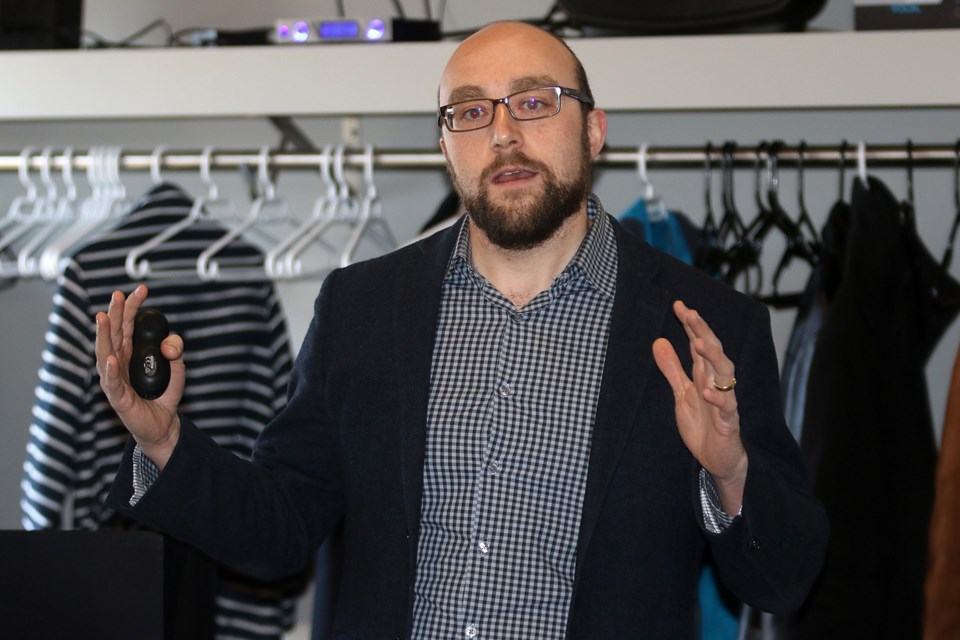THUNDER BAY – The minimum wage hike – and coming $1-an-hour extra scheduled to kick in on Jan. 1, 2019, has had a mostly negative effect on local businesses, according to a study conducted by Lakehead University researchers.
The same study estimated between 300 and 1,150 jobs could be lost locally as a result of the increase, which jumped from $11.60 an hour to $14 an hour at the start of 2018.
Other impacts include workers seeing their hours reduced as a cost-cutting measure by businesses, or higher prices being passed on to the consumer.
The fact the Thunder Bay economy isn’t growing in leaps and bounds appears to have had the biggest effect on how survey respondents answered.
“Businesses that were strong and hiring more people seemed to be less concerned with the minimum wage,” said Lakehead University associate professor of accounting Camillo Lento on Wednesday, unveiling the study results to local business and political leaders.
About 49.2 per cent of respondents answered the hike, ushered in by Premier Kathleen Wynne’s Liberal government, was mostly negative. In contrast, only 6.5 per cent suggested it was mostly positive. A further 33.5 per cent had no strong feelings either way, while 10. 8 per cent are unsure at this time.
“In communities where the growth is not as much, like Thunder Bay, about 1.2 or 1.3 (per cent) probably this year, because it has an impact said business administration dean Bahram Dadgostar, who oversaw the completion of the report, a joint offering with Thunder Bay Ventures.
The study also shows which sectors were likeliest to be affected by the minimum wage increase, starting with fast-food workers.
Also high on the list are retail sales associates, estheticians, servers, grocery produce stockers and clerks, dishwashers, home-care workers, housekeepers, lifeguards and cashiers. Not surprisingly, those falling in the 15 to 24 age categories were also likeliest to fall victim to the downsides of the increase, which Progressive Conservative Leader Doug Ford has promised to halt if he’s elected to lead the province in the June 7 Ontario election.
Coun. Frank Pullia, widely expected to run for mayor again this fall, said the city has measured the impact on its own budget at about $1.1 million for 2018 alone.
“And the ripple effect has not been measured yet,” Pullia said during a brief question and answer session after the presentation.
The bigger threat, said Lento, is automation.
As more and more companies move toward robotics and driver-less vehicles become the norm, it could be fewer and fewer available jobs and force a paradigm shift in thinking from governments, who may be forced to make businesses pay more to ensure people have a living wage.
“It’s going to come regardless of the minimum wage and in my opinion going to be the biggest challenges,” Lento said.
“The role of government will be to reallocate wealth.”
